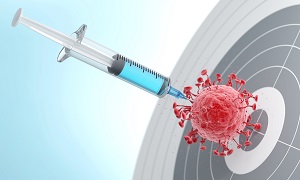Ovarian Cancer
Cancer occurs when the cells grow abnormally and also invade nearby tissues and eventually spreading to other organs in the body through the bloodstream or the lymph nodes.
Ovarian cancer is the cancer of ovaries. They are a part of female reproductive system, one on each side of the uterus. The function of ovaries is to produce eggs & hormones, viz. oestrogen and progesterone.
Causes of Ovarian Cancer
- Family history
- Prolonged use of contraceptive pills.
- Fertility drugs
- Breast cancer
- Obesity
- Gynaecological surgery like hysterectomy
- Endometriosis ( Abnormal tissue grows outside the uterine lining)
Types of Ovarian Cancer
Ovarian cancer occurs in three main groups:
- Epithelial Tumors- These are found in the cells lining the surface of the ovary.
- Germ Cell Tumors- These are found in the cells that are responsible for eggs reproduction.
- Primary Peritoneal Carcinoma- This is similar to epithelial tumour but it is not affected by the removal of the ovaries.
Signs & symptoms of Ovarian Cancer
- Pain in the lower abdomen.
- Frequent urination
- Pain during sexual intercourse
- Constipation
- Nausea
- Weight loss
- Loss of appetite
- Indigestion
- Breathlessness
Stages of Ovarian Cancer
- Stage I: Cancer is confined to the ovary or ovaries.
- Stage II: Cancer is present in the ovaries & has spread to other organs within the pelvis like the uterus, fallopian tubes, bladder & rectum.
- Stage III: The cancer is present ovaries and either the lining of the abdomen or lymph nodes in the back of the abdomen.
- Stage IV: The cancer has spread to other parts of the body & outside the peritoneal cavity.
Diagnosis of Ovarian Cancer
- Blood Tests are done to check the presence of CA-125, a marker.
- Transvaginal Ultrasound
- MRI
- CT Scan
- Laparoscopy- A small incision is made in the lower abdomen through which a thin tube with camera at end is inserted which allows the doctor to examine the ovaries.
- Abdominal fluid aspiration- If there is fluid accumulation and swelling in the abdomen, then some fluid is removed & send for examination.
- A sample tissue is removed from the suspicious area and send for examination.
Treatment of Ovarian Cancer
The treatment of ovarian cancer depends on the stage & grade of cancer. Following are the treatment options of Ovarian Cancer.
Surgery
Chemo
Chemo is the use of anti-cancer drug that helps to slow or stop the growth of rapidly dividing cells that cause cancer. It prevents the growth of rapidly dividing cells by killing the dividing cells.
Despite its side effects, chemo is still the most widely used cancer treatment option. Unlike radiation and surgery which treats cancer cells at particular locations, chemo drugs can kill cancer cells that have metastated (spread) to different organs in the body.
Targeted Drug Treatment
Targeted treatment is a type of cancer treatment that uses cancer drugs. However, it is different from traditional chemo treatment, which also uses drugs to kill cancer cells. In Targeted treatment, the cancer’s specific genes, proteins, or the tissue environment that contributes to cancer growth and survival are targeted. Targeted treatment is generally used with chemo and other interventions.
Hormone Treatment

Hormones of our body are produced in the endocrine glands like thyroid, pancreas, ovaries & testes. Some hormones may help growth of cancers like breast & prostate cancer. In hormone treatment, medications are given to deprive the cancer cells of the hormones they need to grow. In some cases, the specific gland responsible for hormone may be surgically removed.
Immuno Treatment
Radiation Treatment
Radiation Treatment is a kind of cancer treatment that uses high doses of radiation beams to kill cancer cells to shrink the tumors. Radiation kills the cancer cells by destroying the DNA. Cancer cells with damaged DNA fail to multiply and die. They are then removed by the body’s mechanism.
FAQs
How long do you stay in hospital after ovarian cancer surgery?
The patient has to stay in the hospital for 3 to 7 days after the operation and can resume their usual activities within 4 to 6 weeks.
How long do the patient live after being diagnosed with ovarian cancer?
Patient can live at least 5 years after being diagnosed with cancer.







